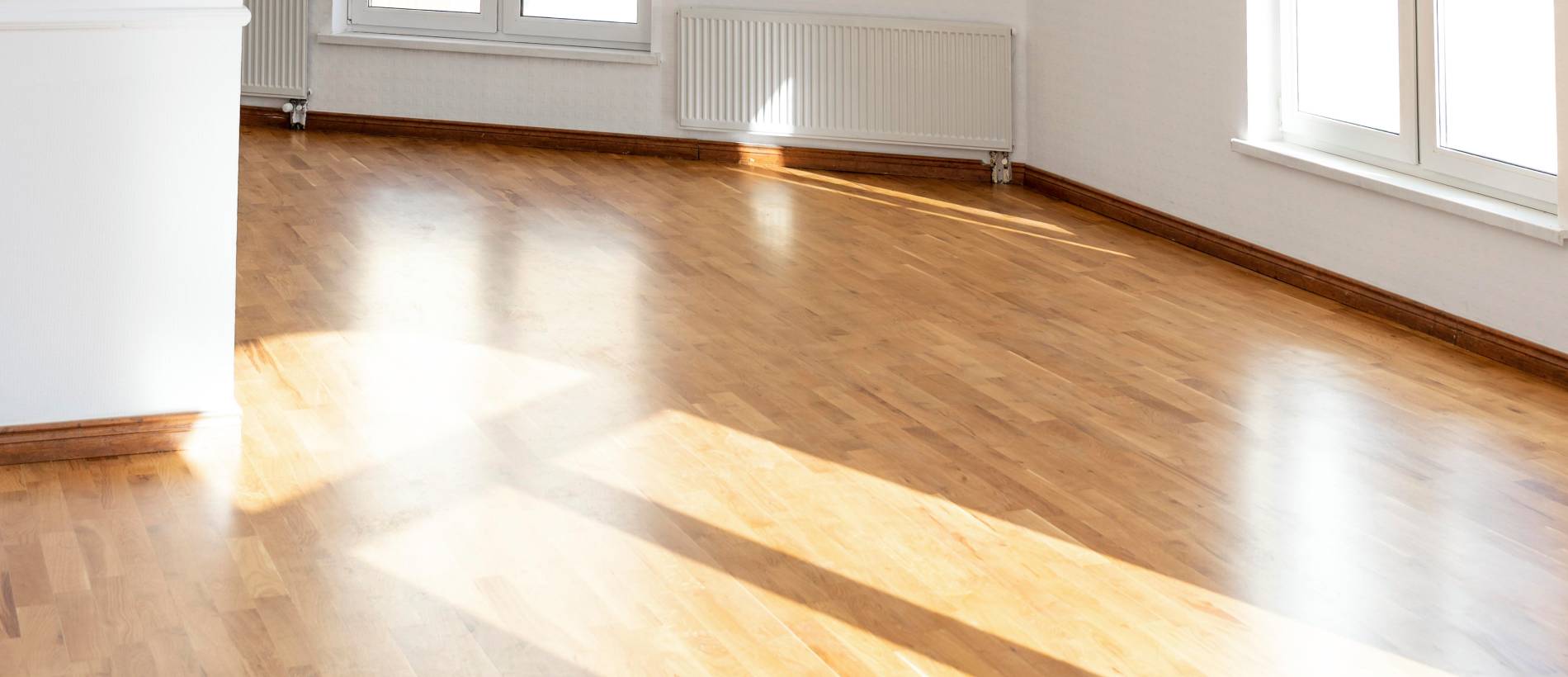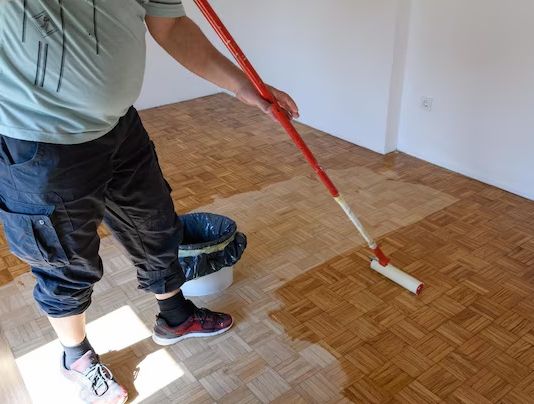
When it comes to improving the look and longevity of their flooring, one essential step property owners shouldn’t overlook is floor sealing. This process entails applying a protective layer to enhance the floor’s appearance and shield it from wear and tear.
This blog aims to cover the fundamentals of flooring sealer products, their applications, and the numerous benefits they provide. Whether you are a homeowner or a property owner, understanding the value of floor sealants can help you maintain and extend the life of your floors.

What is Floor Sealing?
Floor sealing involves applying a protective layer to the floor’s surface. This layer serves as a barrier, preventing damage from moisture, stains, chemicals, and wear and tear.
It is crucial for porous surfaces like concrete, stone, and tile, as these materials can absorb liquids and other substances that can lead to deterioration over time. Additionally, sealers create a non-porous layer that protects the floor while enhancing its appearance.
Types of Flooring Sealers
Floors come in different types. That is why it is essential to learn about the various types of floor coating and sealers available to help you choose one for your specific needs. The most common ones include the following:
Penetrating Sealers: These sealers soak into the floor’s surface, filling pores and creating a protective barrier from within. They are ideal for natural stone and concrete floors.
Topical Sealers: These sealers form a protective layer on the floor’s surface. They can be either film-forming or non-film-forming and are commonly used on tile and stone floors.
Acrylic Sealers: Known for their ease of application and fast drying times, acrylic sealers are suitable for various floor types, including concrete and wood.
Polyurethane Sealers: These sealers provide a durable and high-gloss finish, making them perfect for areas with heavy foot traffic.
Epoxy Sealers: Epoxy sealers offer a strong, long-lasting finish. Experts usually recommend floor sealing epoxy for commercial and industrial settings because they are resistant to chemicals and abrasions.
Applications of Floor Sealers
Floor sealing can be applied in various settings, both residential and commercial. Some applications include:
Homes: Some parts of our homes are highly exposed to water. These areas include the kitchen, bathroom, and even the basement. Sealing your floors helps protect these surfaces from damage and stains caused by water ingress.
Commercial Buildings: Commercial buildings often have higher foot traffic. That is why keeping the floorings durable and presentable for businessmen, customers, and other occupants is essential. You can do this with floor sealing.
Industrial Facilities: Remember, industrial facilities are exposed to strong chemicals, heavy machinery, and frequent cleaning procedures. A professionally applied floor sealant provides a strong barrier against these elements.
Outdoor Areas: Outdoor flooring suffer from changing weather. So, before your patios, driveways, and walkways are affected by weather elements and wear, it is best to shield them with a floor sealant.

Benefits of Sealing Your Floors
Protection Against Damage: Sealers provide a strong defence against moisture, stains, and abrasions, ensuring your floors remain in excellent condition for years.
Enhanced Appearance: As previously mentioned, sealing can improve the beauty of your floors, adding a glossy or matte finish that highlights the material’s characteristics.
Easy Maintenance: Sealed floors are easier to clean and maintain, as the protective layer prevents dirt and grime from penetrating the surface.
Extended Lifespan: Floor sealing extends the lifespan of your floors by protecting against wear and tear, saving you money on repairs and replacements.
Increased Safety: Some sealers offer slip-resistant properties, making floors safer, especially in moisture-prone areas.
How to Choose the Right Floor Sealer
Selecting the appropriate floor sealer depends on various factors, including the type of floor, the environment, and the desired finish. Here are some tips to help you make the right choice:
Identify the Floor Type: Different materials require specific sealers. For example, penetrating sealers are best for porous surfaces, while topical sealers work well on non-porous floors.
Consider the Environment: High-traffic areas or spaces exposed to moisture and chemicals may need more durable sealers like polyurethane or floor sealer epoxy.
Desired Finish: Determine whether you prefer a glossy, matte, or natural finish. Some sealers enhance the floor’s colour and texture, while others provide a more subtle look.
Application Ease: Some floor sealers are easier to apply than others. So, if you’re planning a DIY project, you may opt for acrylic sealers, as they are user-friendly and dry quickly.
Budget: Evaluate the cost of the sealer and its longevity. Investing in a high-quality sealer can save you from spending more money in the long run because of maintenance and replacement costs.
The Process of Sealing Floors
Preparation: Floor cleaning and sealing go hand in hand. Clean the floor thoroughly to remove dirt, grime, and any previous coatings. Ensure the surface is dry before applying the sealer.
Application: Apply the sealer according to the manufacturer’s instructions. This process usually involves using a brush, roller, or sprayer. Multiple coats may be necessary for penetrating sealers.
Drying: Allow the sealer to dry completely. Note that the material’s drying time varies depending on the type of sealer and environmental conditions.
Maintenance: Maintain the sealed floor by regularly cleaning it with appropriate products and reapplying the sealer as needed.
Why Hire Professional Floor Sealing Contractors?
While DIY floor sealing is possible, hiring professional floor sealing contractors in Brisbane can ensure the job is done correctly and efficiently. Our professionals at Superior Waterproofing have the expertise and tools necessary for the project, ensuring you get value for your money.
With a professional floor sealing contractor, you will have an assurance that the sealer is evenly applied and the experts can handle any challenges that may arise during the process. We can also recommend the best sealer for your specific needs for long-lasting floor protection.
Call Superior Waterproofing Now for Your Sealing and Waterproofing Needs
Floor sealing is a vital step in maintaining the beauty and longevity of your floors. If you are considering this procedure for your property, Superior Waterproofing offers professional services to ensure your floors receive the best protection possible. Contact us today at +61468760750 to learn more about our waterproofing solutions and how we can help you maintain the beauty and durability of your floors.